Environmental DNA, or eDNA, is a molecular sampling technology that collects information about organisms using DNA shed by them into their environment. While eDNA holds exciting potential to become an efficient, low-cost, non-invasive ecological monitoring method, a lack of standardization of approaches and purpose-built sampling equipment make it hard to compare results and determine its actual effectiveness across studies. Detection success and accuracy also vary greatly among species and environments, making standardization a challenge.
However, as eDNA moves toward becoming an industry standard method for species detection and management, the equipment is beginning to transition from largely do-it-yourself experimental contraptions to professionally engineered tools. For example, Smith-Root Inc. recently developed the first-ever purpose-built eDNA sampling system, which they call ANDe™. We’re also seeing an expansion of eDNA applications from mainly marine to freshwater and even terrestrial environments, although the latter still requires substantial growth.
As this nascent field develops, it is critical for the conservation tech community to explore and identify how eDNA applies to management needs, and to ensure that continued development meets those needs. Beyond indicating species presence, research so far suggests that eDNA can contribute to conservation by deepening understanding of population dynamics, resource usage, disease presence, invasion pathways of non-native species, and population genetics, to name a few. This indicates that it could be a critical tool for managing imperiled and invasive species.
If you're new to eDNA and genomics, check out our Tech Tutors episode "How Do I Use Portable Genomics in the Field?" featuring Ineke Knot. You'll also find a bank of resources on that page, including a handy glossary of terms in our collaborative notes document!
Does your work involve eDNA and genomics, or are you curious about incorporating this type of technology into your field or lab work? Start a discussion in our group forum!
Header Image: Benjamin Barca
No showcases have been added to this group yet.
- @trish_lai
- | she/her
UCD SVM Student
- 0 Resources
- 0 Discussions
- 11 Groups
- @Robincrocs
- | He/Him//El//Ele
Wildlife biologist, works with Caimans and Crocodiles
- 0 Resources
- 0 Discussions
- 15 Groups
- @StephODonnell
- | She / Her
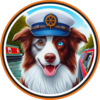


- 196 Resources
- 676 Discussions
- 31 Groups
Hello, I am a PhD student studying birds and box turtles!
- 0 Resources
- 0 Discussions
- 8 Groups
I am a conservation technology advisor with New Zealand's Department of Conservation. I have experience in developing remote monitoring tech, sensors, remote comms and data management.
- 0 Resources
- 0 Discussions
- 15 Groups
Technical Specialist at FFI: loves data management, maps, remote sensing & GIS for conservation

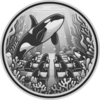

- 2 Resources
- 2 Discussions
- 9 Groups
Royal Society for the Protection of Birds (RSPB)
- 0 Resources
- 0 Discussions
- 5 Groups
Graduate Student at NM-AIST
- 0 Resources
- 0 Discussions
- 1 Groups
World Wide Fund for Nature/ World Wildlife Fund (WWF)
Lead specialist in animal population monitoring at WWF combining field experience with innovative technologies like environmental DNA and AI to advance global biodiversity conservation through cost-effective monitoring methods.

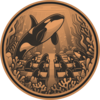
- 0 Resources
- 1 Discussions
- 2 Groups


- 0 Resources
- 1 Discussions
- 5 Groups
- @Durgananda
- | He
- 0 Resources
- 0 Discussions
- 19 Groups
- @MStarking
- | she/her/hers
Ecologist and conservation researcher, currently an Assistant Professor at University of Michigan-Flint, research areas include landscape ecology, forestry and wildlife interactions, wildlife habitat relationships, spatial ecology, GIS.

- 0 Resources
- 1 Discussions
- 15 Groups
Link
Environmental DNA (eDNA).
11 August 2025
eDNA - Spider Webs & Terrestrial Vertebrates.
10 August 2025
If you're a PhD student, post-doc, advisor, or marine expert - Plan Vivo is looking for you!
5 August 2025
Link
eDNA & Reptiles.
4 August 2025
While learning from our ecological restoration project managers’ experience, the Assistant Project Manager will provide essential technical and logistical support to the team. This role will focus on fieldwork, data...
10 July 2025
Article
Using SNP markers with an Amphibian species, we were able to identify a total of 17,617 nuclear single nuclear polymorphisms shared across individual, pond eDNA (4 populations) and tank eDNA samples (where tadpoles of...
30 May 2025
Conservation International is proud to announce the launch of the Nature Tech for Biodiversity Sector Map, developed in partnership with the Nature Tech Collective!
1 April 2025
WWF's Arctic Community Wildlife Grants program supports conservation, stewardship, and research initiatives that focus on coastal Arctic ecology, community sustainability, and priority Arctic wildlife, including polar...
7 March 2025
Osa Conservation is launching our inaugural cohort of the ‘Susan Wojcicki Research Fellowship’ for 2025, worth up to $15,000 per awardee (award value dependent on project length and number of awards given each year)....
10 February 2025
The authors used the Continuous Degradation Detection and LandTrendr to map forest disturbance and regeneration, carbon sequestration and changes in habitats. This was coupled with eDNA from soil samples from...
2 November 2024
Join us in celebrating this year’s Judging Panele Award winners!
19 August 2024
December 2023
event
November 2023
event
6 Products
Recently updated products
| Description | Activity | Replies | Groups | Updated |
|---|---|---|---|---|
| Hola, Alen! I'm a veterinarian too and this device is being developed thinking of you and your colleagues. We want field veterinarians to be able to collect more samples with less... |
|
Emerging Tech, eDNA & Genomics | 1 month 3 weeks ago | |
| Thank you for your reply, ChadI meant 10 as a whole, indeed. Perhaps you see your post in one group, but since it is tagged for all groups, I assumed you meant 10 in total.In your... |
|
Acoustics, AI for Conservation, Animal Movement, Camera Traps, Citizen Science, Climate Change, Community Base, Connectivity, Drones, eDNA & Genomics, Emerging Tech, Funding and Finance, Geospatial, Human-Wildlife Coexistence, Software Development, Wildlife Crime | 1 month 3 weeks ago | |
| Hi @skirchgeorg , thanks for the additional info. We discuss again about this with my colleague and we were still hesitating with the drone, as it will still make some noise that... |
|
Drones, eDNA & Genomics | 4 months 2 weeks ago | |
| Hi Nabil,What medium do you want to sample for your eDNA (soil/air/water)? If its soil then you can simply collect a sample in a bag and freeze.This is a nice soil collection... |
|
eDNA & Genomics | 5 months 3 weeks ago | |
| Hi all, I am trying to find simple pre-assembled eDNA sampling kits like these below but for sale in North America. Is that... |
|
eDNA & Genomics | 6 months ago | |
| Hi Simon,We (Reneco International Wildlife Consultants) have an ongoing collaboration with a local University (Abu Dhabi, UAE) for developing AI tools (cameratrap/drone... |
|
Acoustics, AI for Conservation, Animal Movement, Camera Traps, Citizen Science, Connectivity, Drones, Early Career, eDNA & Genomics, Marine Conservation, Protected Area Management Tools, Sensors | 6 months 4 weeks ago | |
| Hi Muhammed,If you want any help with ONT please contact me |
|
eDNA & Genomics | 7 months 1 week ago | |
| Hi Phil, Thanks for sharing - this is really interesting work! Seems like a cool integration of ground-based (or ocean-based) data and satellite data, with a community... |
|
Geospatial, Acoustics, Camera Traps, eDNA & Genomics | 10 months 2 weeks ago | |
| Thank you so much! Now everything is in the hands of amazing organizations and companies! But the first results of the Disaster Management cohort are bringing a very optimistic... |
|
AI for Conservation, Climate Change, Early Career, East Africa Community, eDNA & Genomics, Emerging Tech, Ending Wildlife Trafficking Online, Human-Wildlife Coexistence, Open Source Solutions | 1 year ago | |
| Hello everyone, I'm interested in gathering insights on how the behavior of different species impacts the development and efficacy of... |
|
Animal Movement, Acoustics, Camera Traps, eDNA & Genomics, Emerging Tech, Marine Conservation | 1 year 4 months ago | |
| Hi everyone. I'm still confused about this. Is it feasible to employ environmental DNA (eDNA) for the detection of two distinct communities... |
|
eDNA & Genomics | 1 year 5 months ago | |
| Thanks Aude, very useful. Will reach out to them! |
|
Early Career, Acoustics, eDNA & Genomics, Marine Conservation, Protected Area Management Tools | 1 year 7 months ago |
Lichen DNA Barcoding – From Sample to PCR product
23 February 2023 9:28pm
A practical guide to DNA-based methods for biodiversity assessment
23 February 2023 12:14pm
Texas Chapter of The Wildlife Society’s Annual Meeting 2023
20 February 2023 10:56pm
Recording: Opportunities of eDNA in biodiversity and ecosystem services
17 February 2023 8:49am
Postdoctoral fellowship in drone-assisted collection of environmental DNA.
12 February 2023 4:01pm
Developing Two Non-invasive Survey Methods for Freshwater Ecosystems: Environmental DNA and Ecoacoustics
10 February 2023 10:41am
Exploring the potential of eDNA as a conservation tool
10 February 2023 9:45am
1 August 2025 10:27am
Conservation Technology Intern (Vietnam)
11 January 2023 5:00pm
New conservation tech articles from Mongabay
20 October 2022 7:45pm
Conservation Technology Intern (Vietnam)
 Stephanie O'Donnell
and 1 more
Stephanie O'Donnell
and 1 more
19 October 2022 9:22am
Conservation Tech Directory - new update!
29 August 2022 2:38pm
23 September 2022 5:26pm
Congrats on the milestone Carly and Gracie!
26 September 2022 10:07pm
Thanks so much!!
Senior Conservation Technology Expert Position (Consultancy) with the Global Wildlife Program
22 September 2022 5:35pm
New paper: Environmental DNA as a management tool for tracking artificial waterhole use in savanna ecosystems
19 September 2022 2:43pm
Scientists Solve Mount Everest Wildlife Mysteries Through the Use of eDNA
14 September 2022 2:53pm
CFP - transnational biodiversity monitoring (from European Biodiversity Partnership)
14 September 2022 1:42pm
Conservation Technology Research Internship
26 August 2022 4:58pm
Post Doctoral researcher - DNA species detection technology
15 August 2022 4:50pm
Tech Tutors: How do I use eDNA in large-scale monitoring of terrestrial mammals?
21 October 2021 12:26pm
28 July 2022 2:52pm
Hi - is a recording of this session (Using eDNA in large-scale monitoring) still available?
28 July 2022 4:47pm
It is! Here you go:
eDNA Postdoc in Seattle
15 July 2022 11:00pm
New Conservation Tech Directory update
27 June 2022 4:45pm
Cofounder needed
9 June 2022 4:23pm
17 June 2022 1:14pm
What about developing a drone conservation training course for field conservation staff teaching specific skills for specific research needs.
17 June 2022 6:54pm
How exciting @Joyeeta ! I'd love to learn more about the companies and projects you worked on, can you share more info about them?
I once chatted to an entrepreneurial advisor with a couple of my conservation tech ideas, and he said my ideas are good/impactful but don't make for a product worth millions of $$$ of turnover per year that would interest investors. So I am very curious about how you got your conservation tech businesses off the ground!
18 June 2022 8:33pm
Some folks doing work in this space - Wildlife Drones, Conservation Drones, UAV Wild, AfricanDrones, Oceans Unmanned, Geonadir.
Multiple positions open at NatureMetrics
4 June 2022 12:41pm
New wildlife forensics lab - Singapore
29 May 2022 12:34pm
eDNA Future applications
25 January 2016 5:12pm
31 January 2019 10:28pm
Hi Yvan,
This is Federico from IVE. The OSMO is being continuously developed and we have a couple of dozen units currently collecting samples/data around the world. It's also relatively cheap as it was designed with citizen scientists in mind. Maybe we could skype for additional details?
Cheers
5 February 2019 3:32pm
Hi Federico,
That's great to hear. Yes, let's skype. I'll send you my info by personal message.
Best
26 May 2022 5:05pm
New paper by Héloïse Verdier of LEHNA lab: Passive sampling of environmental DNA in aquatic environments using 3D-printed hydroxyapatite samplers https://onlinelibrary.wiley.com/doi/epdf/10.1111/1755-0998.13604
The group createda proof of concept of a passive, 3D-printed and easy-to-use eDNA sampler: "We designed the samplers from hydroxyapatite (HAp samplers), a natural mineral with a high DNA adsorption capacity. The porous structure and shape of the samplers were designed to optimize DNA adsorption and facilitate their handling in the laboratory and in the field. Here we show that HAp samplers can efficiently collect genomic DNA in controlled set-ups, but can also collect animal eDNA under controlled and natural conditions with yields similar to conventional methods. However, we also observed large variations in the amount of DNA collected even under controlled conditions. A better understanding of the DNA–hydroxyapatite interactions on the surface of the samplers is now necessary to optimize eDNA adsorption and to allow the development of a reliable, easy-to-use and reusable eDNA sampling tool."
Opportunity: Product Design Engineer
6 April 2022 12:00am
News: The Latest in Conservation Tech
10 March 2022 12:00am
Measuring biodiversity from DNA in the air
27 January 2022 12:00am
How do I use eDNA in large-scale monitoring of terrestrial mammals?
13 October 2021 12:00am
WILDLABS Tech Tutors: Season 3
6 July 2021 12:00am
PhD Survey - Use of genetic tools in aquatic invasive species management
12 May 2021 3:25pm


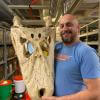








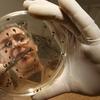


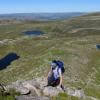

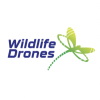







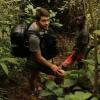

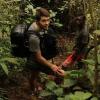














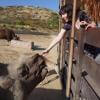
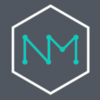







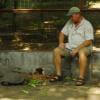





1 August 2025 10:31am